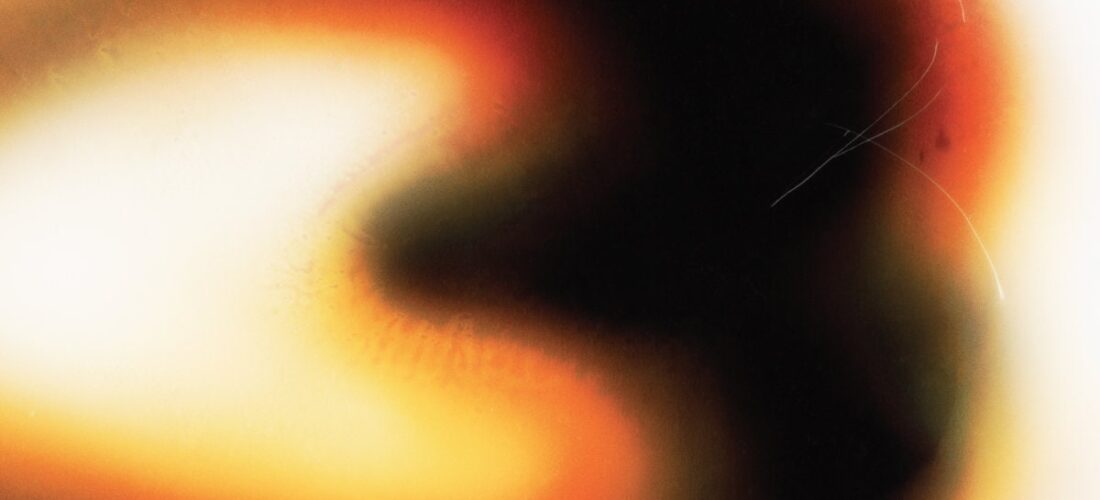Whatever ineffable force makes music feel both contained and alive, Still House Plants have it. Their beautifully fractured sound seems made of nerve endings, like the band’s process is on view and we’re hearing the very moment of a Still House Plants song taking shape. The London trio of vocalist Jessica Hickie-Kallenbach, guitarist Finlay Clark, and drummer David Kennedy, who met about a decade ago at the Glasgow School of Art, once said they practice only the starts and endings of their songs, which underscores how each one works: as a vessel for abandon.
Is it telepathy that guides them? When Still House Plants made their U.S. debut in New York last spring, they often communicated among themselves with just their eyes. Elongated silences held between notes would put the audience on edge before everything crashed together at exquisitely incongruous angles. On stage as on record, the trio inhabits the free space of punk and the capaciousness of free improvisation at their own frequency.
Like 2020’s Fast Edit, which established Still House Plants as one of the most exciting experimental rock bands around, If I don’t make it, I love u still eschews conventional song forms in favor of a kind of collective flickering, with rhythms that speed and slow by their own logic and carry the persistent charge of small epiphanies. But this is a bolder, clearer, preternaturally vivid iteration of their music; “I’ve been trying to get much stronger,” Hickie-Kallenbach sings on “MORE BOY,” a thesis. Kennedy brings the inquisitiveness of a free-jazz drummer while Clark uses their guitar to synthesize the glimmer of Midwest emo and ’90s slowcore with the choppy minimalism of no wave. Hickie-Kallenbach’s deep, soulful singing suggests Tirzah’s R&B rasp if it were more elastic and ecstatic. The band applies the tropes of electronic music (samples, breaks, loops) in the way they construct, or more accurately deconstruct, songs with only guitar, voice, and drums. A Still House Plants song is a three-way search forward. It’s always a high-wire act.
The album is divided into 11 tracks, but it feels anchored more discernibly by specific moments within songs: notes and tones that make you think, What’s that? The answer might be some unknown glitter in the guitar, or some marvelous friction, like the sparks that punctuate “M M M” or the buzzsaw discord that cuts through “Silver grit passes thru my teeth” like a flash of shoegaze. The melted chords of “Pant” and wobbly edges of “3scr3w3” make me think fleetingly of Autechre (and it’s hard to imagine another band that could simultaneously conjure Autechre and American Football while speaking their own language entirely). On “MORE BOY,” when the drums pick up midway and Hickie-Kallenbach’s singing locks in, ascending over Clark’s chiming guitar, it’s chilling. The singer’s guttural vocals glitch, digging into a repeated phrase, as if she were sampling herself using only her voice. “MORE BOY” also proves Kennedy’s assertion in an interview with The Wire that withholding drum fills “helps in building up a continuous phrase that never finishes,” a liminal sound.
